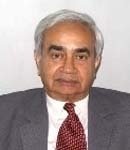The media hype and incessant chatter on the idiot box had unconsciously raised expectations sky high that President Musharraf would chart a new direction for Indo-Pak relations. It was unrealistic to assume that he could have reversed the direction set by his predecessors over the last fifty years. So what’s new in his address?
His bombastic rhetoric on
Pakistan
’s commitment to the
Kashmir
cause, “
Kashmir
runs in our blood. No Pakistani can afford to sever links with
Kashmir
” is not new. But it should be weighed against his further remarks that, “Strict action will be taken against any Pakistani individual, group or organization found involved in terrorism within or outside the country”. This was new. He further mentioned that, “We condemn the terrorist acts of September 11, October 1 and December 13”. By equating the attack on the WTC towers/Pentagon with those on the
Jammu and Kashmir
Legislative Assembly and the Indian Parliament House, Musharraf traversed an enormous distance in aligning himself with the global war against terrorism, and distancing himself from the policy of supporting terrorism outside
Pakistan
. Verbally, at least, he has committed himself to stop promoting jihad and cross-border terrorism into
India
; this sets the stage for his proceeding against the extremist and jihadi elements in
Pakistan
, supported by the ISI, to launch terrorism into
India
.
Is this only rhetoric? The Indian government is naturally skeptical. Its recent experience has informed that President Musharraf’s words and deeds have not matched. Moreover, the architect of Kargil cannot be easily trusted. The Indian Government is wary of being pronounced credulous and negligent again by the Opposition, notably the Congress party, which has unsparingly criticized Prime Minister Vajpayee’s naiveté in pursuing his peace diplomacy with
Pakistan
when it was infiltrating its forces into Kargil. This explains
India
’s cautious reaction to Musharraf’s address, and statement that, “we [Indians] expect
Pakistan
to cooperate with
India
in stopping all infiltration across the International Border and the Line of Control”. Joint border patrolling could achieve this objective; this has been demanded by
India
earlier. Apropos, the penultimate draft text of the Simla Agreement envisaged joint border teams “to supervise the effective observance of the Line of Control and the rest of the border between the two countries”. But this clause was deleted on Bhutto’s insistence.
Musharraf’s comments on
Pakistan
’s preparation and deployment of its armed forces on the Indo-Pak border, that they “will spill the last drop of their blood in the defence of their country” and that any invasion “will be met with full force” was part of his bombast. It was indubitably intended to reassure
Pakistan
against the ill-advised threat, with its unsubtle reference to the nuclear dimension, conveyed by the Indian Army Chief and the Indian Defence Minister a day before Musharraf’s address. Significantly, there was no mention in Musharraf’s rejoinder to the nuclear dimension.
What about
Pakistan
proceeding against indigenously based terrorist outfits? And criminal elements from
India
given asylum in
Pakistan
? Musharraf has promised action against Pakistani nationals under local laws if evidence is provided by
India
to indict them; this position cannot be legally faulted in the absence of an extradition treaty between the two countries. Regarding Indian criminals, Musharraf was being altogether disingenuous in declaring “we have not given asylum to anyone. Anyone falling under this [Indian national] category will be proceeded against whenever one is found”. The list of such Indian criminals provided to Pakistan includes such worthies as Dawood Ibrahim, Tiger Memon, and Chhota Shakeel; they are enjoying great comfort in Karachi and have, no doubt, suborned the local officials and politicians no less successfully than their counterparts in India. Expatriating them to
India
without letting them escape from
Pakistan
would truly test
Pakistan
’s earnestness in pursuing the war against terrorism with sincerity.
But it is in the area of domestic reform viz. banning terrorist organizations like the Lashkar-e-Taiba and Jaish-e-Mohammad; measures to register and permit establishment of mosques and madrassas; prohibiting their “indulging in extremism, subversion, militant activity or possessing any types of weapons”; insistence on foreign students possessing proper [entry] documents; and reforming the police organization, where Musharraf has broken radically with the past to reshape Pakistan’s polity. These policy initiatives are truly revolutionary, and their significance cannot be understated. Indeed, an analysis in The Nation has noted, “He [Musharraf] has actually changed foreign policy more fundamentally than his U-turn on
Afghanistan
and has set in motion an attempt to reverse the religious rightist tilt that was Zia-ul Haq’s policy”. Only time will reveal whether Musharraf will succeed but, if he does, a blow would have been struck at the roots of terrorism that had earned
Pakistan
the dubious distinction of being a de facto terrorist state.


